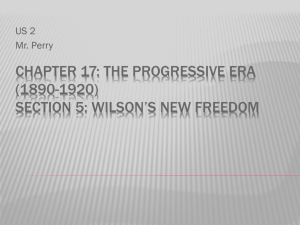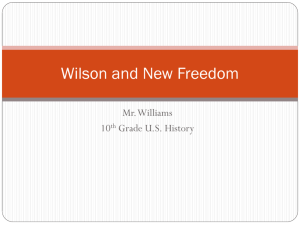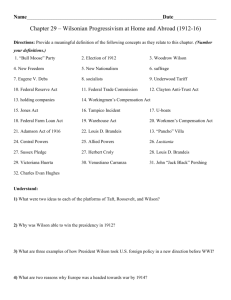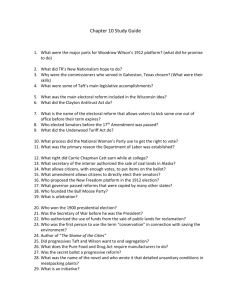William H. Taft
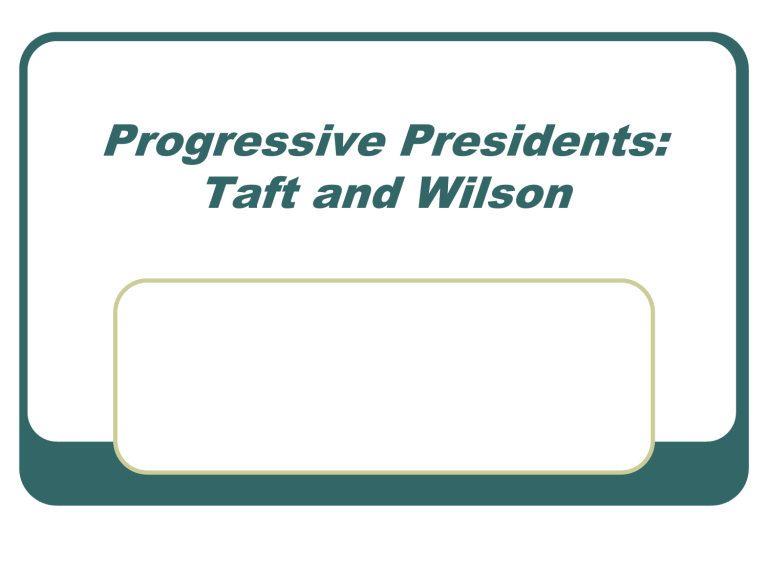
Progressive Presidents:
Taft and Wilson
William H. Taft: Republican
Roosevelt opposed the idea of a third term for any President
•
Hand picked successor
Uncomfortable as President
A lawyer - viewed issues through the eyes of a lawyer
Carried on Dollar Diplomacy
Not an activist
The Election of 1912
Taft v. TR in the primary
TR’s Progressive Party (Bull Moose Party)
•
Platform
• strict regulation of corporations
• national tariff commission
• national presidential primary
• federal minimum wage and workman’s comp
• federal laws eliminate child labor
Republican vote split: Democrat Wilson wins
Woodrow Wilson – Personal
Background
Southerner – Born in Virginia, 1856
Southern attitudes on states rights and race
Very devote Presbyterian
•
Morals factor into decisions, making compromise difficult
Lawyer, PhD in History
President of Princeton, Gov of NJ for one term
The Democrats in 1912
Believed in the “New Freedom”
•
Wilson’s Domestic Plan
•
Government should not be large and intrusive. It should pass sharp legislation that would destroy large corporations, trusts and monopolies
•
Government should pass laws that set rules of competition
Wilson’ s First Term
Legislative Achievements – Dramatic
•
Underwood-Simmons Tariff Act (1913)
•
Federal Reserve Act (1913)
•
Federal Trade Commission (1914) (FTC)
•
Clayton Anti-Trust Act (1914)
Progressive Actions for Farmers
Federal Farm Loan Act – Credit system for farmers
Smith-Lever Act
The Election of 1916
How would he get reelected?
Democrats are still the minority party
Peace keeper – “He kept us out of war”
Wilson vs. Charles Evans Hughes
Wilson wins on his record
Civil Rights: Wilson
Wilson - comfortable with segregation
•
In best interest of both races
•
Supported separate but equal
•
Jim Crowism will continue to flourish
The African American Response
•
Build African American Community and Institutions
W.E.B. DuBois – (1868 – 1963)
Independent scholar
1903 – writes The Souls of Black Folks
Leader of Niagara Movement from 1905-09. This transforms into the NAACP
Sought full equality for blacks
His views
•
Vocational education = second class citizens
•
Emphasized political activity, right to vote and social equality for blacks
•
University education is critical
•
Talented Tenth
NAACP charter – objective is for blacks to receive 1st class citizenship.
•
“Make 11 million blacks physically free from tyranny, mentally free from ignorance, politically free from disenfranchisement, and socially free from prejudice, bigotry and insult.”

